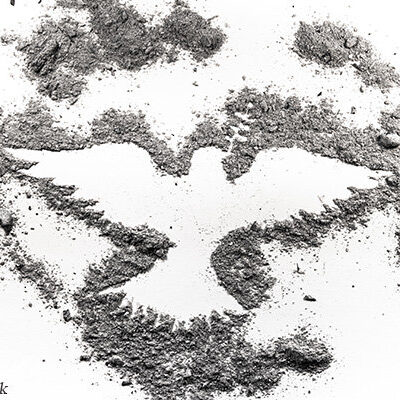We have entered a new era of competition and open confrontation. The last century has been defined along American and European lines. The predominance of the US in world affairs has persisted since the end of World War II. The power of the British Empire was exhausted. Europe was shattered. Both were deeply indebted from the conflict and reliant on the United States against the new threat of Soviet expansion.
The Cold War shaped generations of policy. Real wars were fought in Korea and Vietnam to contain the spread of communism. President Richard Nixon famously opened up trade with China, effectively souring their alliance with the Soviet Union. Another tactical decision that would have questionable future consequences was arming the Mujaheddin in Afghanistan. Other methods, some more and some less nefarious, were used to gain or purchase influence in every corner of the globe.
This ongoing conflict shaped the United States into the premiere world power. The collapse of the Soviet Union from the pressures of competition and its own serious internal flaws solidified the influence of the US. The phrase “world’s only superpower” was on every tongue. Prestige and credibility come with a great deal of responsibility, and may be even more difficult to maintain than acquire. Decades have gone by. The United States faces renewed challenges from the reinvigorated communist nations of Russia and China. It is worthwhile to examine some of the present realities and past events that will shape the future of this conflict.
The Dollar has been the world’s reserve currency since the Allies adopted the Bretton Woods agreement in 1944. Most European countries had already abandoned their gold standards, printing paper money to meet their wartime needs. Franklin Delano Roosevelt had, in 1933, forced US banks to stop paying out gold. Additionally, he made it illegal for citizens to keep gold currency, requiring them to exchange it for the price of $20.67 an ounce. While hoarding gold, he flooded the economy with paper money. One year later, the government increased the price of gold to $35 an ounce, massively raising the value of its newly acquired reserves.
During the war, as the source of most of the supplies needed by Europe, the United States accumulated the largest stockpile of gold in the world. Bretton Woods pegged the value of other currencies to the Dollar. The Dollar was backed by gold, thanks to the large US reserve, and took the place of gold in the reserves of other nations. While American citizens could not redeem their Dollars for gold, foreign central banks could.
Years later this became a problem. The massive increase in Dollars occasioned by borrowing for war and social programs became a liability, as had the large reserves held by foreign banks. Enough Dollars were abroad to threaten the entire system and in 1971 the link to gold was unceremoniously abandoned. US citizens were again permitted to own bullion in 1974. The Dollar survived the shock and remains the world’s reserve currency to this day. Now, as then, our own monetary policy presents one of the greatest threats to a global system designed to keep us on top.
As a fiat currency the Dollar has no intrinsic value, it is not linked to any commodity. Perception, supply and demand all affect its worth. World reserve currency status helps keep demand high. Business deals all around the world are priced in Dollars, as are important commodities like gold and oil. The perception of the United States as strong and stable increases confidence in the Dollar as a medium of exchange. What could change that?
For years both China and Russia have been attempting to circumvent the Dollar system. Their own bilateral deals are often priced in Euros though recently they tend to be denominated in Yuan. China would love to displace the United States in world finance. Its Belt and Road Initiative can be seen as positioning to help bring that about.
Proverbs 22:7 reads, “The rich ruleth over the poor, and the borrower is servant to the lender.” If China should begin to pressure its debtors to handle their business dealings in Yuan are they going to be in any position to say no? It is feared that western sanctions against Russia over the invasion of Ukraine are going to help foster the growth of this system. The levels of Dollars vs Yuan held by Russian banks over the past few years have illustrated that a change is taking place. This helps shield both China and Russia from international sanctions.
Additionally, a new energy supply deal includes a pipeline from the very fields that supply Europe. The route it will take studiously avoids Xinjiang and the sanctions crossing it might entail. The deal was announced before the Olympics along with other statements of unprecedented cooperation.
Many of their financial institutions have claimed they are not worried about sanctions, including potential exclusion from SWIFT. Despite the immediate disruptions and losses, they expect to overcome them quickly and be less susceptible to external pressures in the future. Russia actually maintains a trade surplus with China and recent agreements have been struck to increase cooperation.
Russia produces enormous amounts of wheat and soybeans as well as possessing abundant natural resources like copper, aluminum, and fossil fuels. China supplies electronics, clothing, and myriad plastic products like we see on our own store shelves. By meeting each others’ needs as much as possible and avoiding using the Dollar as a medium of exchange, they are less likely to suffer from push back over aggressive and unethical foreign policies. Their other major trading partners like India and Brazil are forced by necessity to maintain an uncomfortable neutrality.
Take China’s handling of its Uyghur population. China knows Islam is not compatible with their atheistic governmental structure. They will not tolerate any religious belief that undermines allegiance to the state. So the Uyghurs are segregated (and worse) to prevent reproduction. They are “reeducated” to undermine their faith and incentivized to recant.
The issue is with religion more than it is ethnicity. The west calls it genocide and yet it does not deter Muslim nations like Saudi Arabia from carrying on a lucrative business with China. Nor are they dissuaded by piecemeal sanctions that avoid the most vital sections of industry by design. Ethics often take a back seat to expedience. It is an extreme example of a government controlling its population.
While portions of the West still clamor loudly in defense of their freedoms, it is astounding how much will be quietly submitted to in an emergency. The last couple of years are a shocking example of that. Could not economic, military, or humanitarian emergencies yield the same results?
The time of the end described in the Bible pictures centralized control, Godless and despotic, dominating the entire globe. Communist philosophy is eerily reminiscent of this. The Chinese communist party embraced limited capitalism to secure their economic place in the world. They openly admit their “socialist market economy” is but an early phase of the true ideal, a step along the way to real communism. Globalism is also a necessary prerequisite. Read their own literature. It is not a secret.
Historically, the Soviet Union bitterly resented China’s engagement in limited capitalism. Events, however, have borne out China’s pragmatism. Russia similarly allowed limited capitalism and has prospered accordingly. They have both cultivated business relationships with their ideological enemies that make them well nigh indispensable.
Russia still benefits from former members of the Soviet Union as well. Some states still rely on fuel rods for Soviet era nuclear reactors that power their cities and only come from Russia. European dependence on Russian gas has become a major issue. It underscores western fragility at this time, complicating an already ticklish situation.
Having already been overburdened with financial largess, emergency intervention over the coronavirus has pushed many economies to the brink of crisis. Inflation is forcing central banks to make decisions that will impact “recovery,” if you can call it that. What further fallout will there be from this new conflict?
Both China and Russia have far less debt proportionately. With populations accustomed to totalitarianism, they have not had to contend with the social upheavals many western nations are still experiencing. “Supply chain issues,” while economically inconvenient, do not have quite the same impact on the production side of the equation. Take potential sanctions for instance. Which is more painful, Russia not selling gas or Europe not having electricity?
The larger issue at stake is American, and by extension European, dominance in world affairs. It is a grave error to treat this lightly or discount the positive effects it has had on many other nations. Not that our history is free from error, far from it. Unscrupulous, self-interested individuals always flock to opportunity and this is the land of opportunity…
We do not have to justify every misdeed along the way to embrace and cherish the ideal of liberty in law, however. A healthy republic is an uncommon thing in history. The nation God tried to make out of the tribes of Israel was similar in many ways.
The people were to choose captains of 10s, 100s, and 1000s to represent them. Courts were established where charges and grievances could be brought. While there were positions of special responsibility, all were equally bound by the law. Yet, they could not sustain it.
Such a system cannot last amongst liars or covetous thieves. It cannot prosper with sloth or selfishness. The people soon begged for a king to tell them what to do and protect them. They didn’t trust God. They didn’t compromise and cooperate. They asked for a ruler! Despotism has been the norm for most of world history whether under the guise of royalty, religion, or raw power. What we have now is an anomaly and it is in jeopardy.
It would be foolish to take it for granted or assume it will continue without a sincere effort from every generation that inherits it. This nation rose on the backs of those willing to preserve it unto death. No less effort may be required again someday. A play for global prestige and influence is taking place. Despite its shortcomings and departures, our system is the only one that even pays lip service to liberty of conscience. Will China let you worship as you see fit? Does Russia care about freedom of speech?
Victory will not be handed to a posse of entitled victims. Virtue and diligence need to be impressed on a society long coddled by luxury and vice. Our own blessings have not caused us to rejoice in thankfulness and obedience to God, at least not on the national level. Nor is there much time given to Godly values. Even many churches have adapted their teachings to popular culture.
Ironically, our Godless opponents cling much more tightly to what you could consider Christian values. They have impugned “western decadence” for decades. More recently they have steadfastly refused to embrace homosexuality or the normalization of gender dysphoria. On other issues, such as climate change and social justice, they do not hesitate to turn the self righteous dogma of the mainstream against itself.
Many of the actions of our own leaders are enough to cause speculation about which system they would prefer to have come out on top. Prosperity is nothing compared to liberty. The potential for both has motivated masses to flock to this land for generations. Can we endure this new challenge?
We have traded humble self reliance for entitlements and social programs. New morals have become popular while the old are almost a crime to utter. Industry has been sacrificed on a green altar. It’s not that the same products aren’t produced, just less cleanly and elsewhere. We have embraced socialism to our detriment while our opponents have engaged in capitalism to their benefit. It is a rather obvious lesson that needs to be learned quickly. The alternative will not be pleasant.










